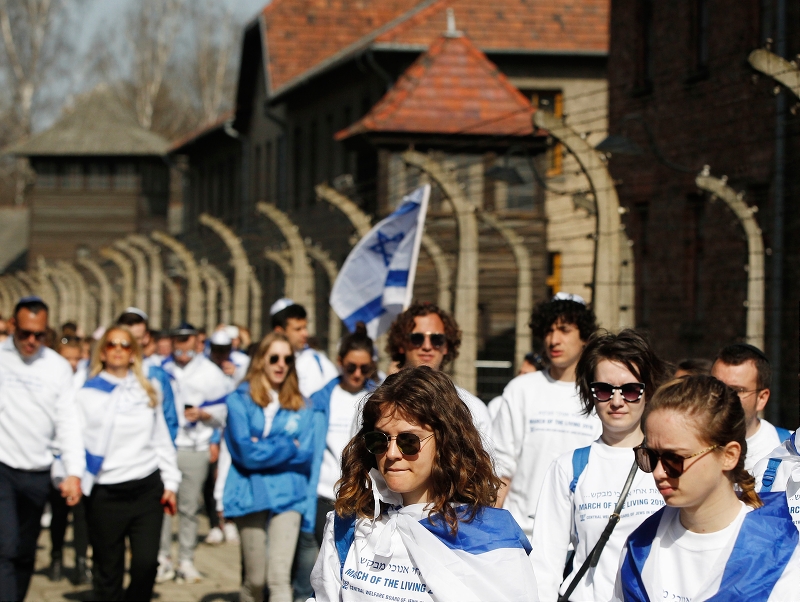Poland and Israel have reached an agreement allowing for the resumption of Israeli youth pilgrimages to sites such as that of the Warsaw Ghetto, Kraków, and Auschwitz. The agreement covers security for the groups of young people that, the minister hopes, will avoid the need for armed Israeli security guards to be visible during the proceedings.
The agreement ensures that Israeli security agents will not be armed during the visits, after the presence of armed men guarding the trips were a previous source of tension between the Polish and Israeli governments.
Marcin Przydacz, an aide to Polish President Andrzej Duda, welcomed the agreement: “I trust the sight of armed Israeli guards in Warsaw and Krakow will now be history and that these groups will be guided safely without any provocative behavior.”
He assured that security would be provided by the Polish side, and was hopeful the agreement would assist in “building a positive message for Israeli youth, so they see it as a place that is peaceful and secure.”
Israeli Foreign Minister Eli Cohen visited Poland on Wednesday and met his Polish counterpart, Zbigniew Rau. Speaking to Israeli media ahead of his trip, Cohen confirmed the two countries “will officially ensure the return of the delegation of Israeli youth to Poland.” He saw it as an important step in the direction of resolving tensions between Poland and Israel, and said the agreement was an “important decision both from a national and educational point of view,” as for Israel, nurturing the memory of the Holocaust is a pillar of its foreign policy.
Israeli Prime Minister Benjamin Netanyahu also commented on the agreement, stating that “lessons about the Holocaust can be taught in many ways, but there’s nothing to beat seeing these sites with one’s own eyes.”
Around 40,000 Israeli school students have regularly visited former Nazi death camps and other sites associated with the Holocaust in order to learn about the atrocities committed, and in memory of the 6 million Jews killed during World War II. In June last year, Israel’s Ministry of Education stated that the trips were to be canceled as a result of a dispute over security surrounding the visits. Israel also maintained that Poland was trying to control the message conveyed to Israeli youth to minimize responsibility of local collaborators in the Holocaust. The Polish side decided it was no longer possible for the trips to be overseen by armed Israeli security guards and claimed there was a need to ensure the visits were not reinforcing inaccurate stereotypes.
The agreement was reached after last week’s negotiations in Warsaw. Representatives of Israel’s foreign ministry, education ministry, and Israel’s national security agency, ISA Shin Bet, participated in the talks which led to the agreement.






